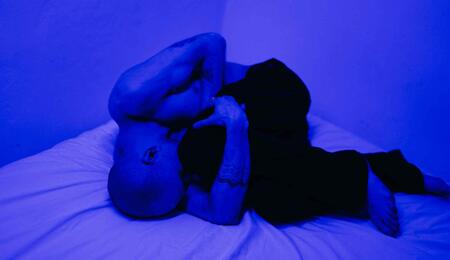Why Seasonal Depression Happens and Can CBD Help?

Depression has many forms. In its more latent forms, you can't even tell a person struggles with depression. The person smiles like nothing is wrong, but it's a background process that sucks all joy of life. When apparent, or in its clinical forms, depression takes a severe toll on the patient's health and wellbeing. Those who suffer from a major depression episode may express they have no will to perform simple tasks in their daily life, such as no interest in basic hygiene or cooking a meal.
According to the National Institute of Mental Health, an estimated 19.4 million adults in the United States have had at least one major depressive episode. This number represented 7.8% of all U.S. adults, with women more likely to be affected.
One type of depression is Seasonal affective disorder (SAD), which is related to changes in the season. Most people who cope with SAD begin to feel the early symptoms once the days begin to become shorter as we enter fall; the condition continues to progress into the winter months. SAD can also manifest in the spring or early summer, with some people experiencing depression in both spring and fall.
Like most types of depression, SAD symptoms may start mild and become more severe later on. Depression saps the energy and mood of the person struggling with it, however, it's a broad spectrum of symptoms that could be going on.
The list of depression symptoms includes:
- Feeling down for most hours of the day. It may be particularly tough to start the day. Things can get a little bit better in the evening.
- No interest in life or activities you would typically enjoy.
- Feeling hopeless, worthless, or guilty.
- Poor sleep hygiene
- Loss of appetite
- Struggle to conduct basic tasks like preparing a meal, cleaning the toilet, or toothbrushing
- Racing thoughts on death or suicide
Some symptoms are specific to Seasonal affective disorder, however. With the fall-winter onset, oversleeping, tiredness, low energy, increased appetite, and weight gain are often reported. On the other hand, less appetite, insomnia, feeling irritated, and weight loss are often reported during a spring-summer onset.
SAD is linked to a combination of factors such as Vitamin D deficiency, low serotonin and/or dopamine, and a disrupted sleep cycle caused by shortening daylight hours.
Serotonin and dopamine act as neurotransmitters in the brain, which help support vital functions such as appetite, mood, sleep, or sex drive. Reduced levels of these chemical messengers directly result in decreased mental wellbeing and presentation of conditions such as depression and anxiety.
Less exposure to sunlight during the winter months contributes to reduced levels of serotonin or Vitamin D.

Can medical cannabis help with SAD?
CBD has been extensively studied on conditions like depression and anxiety. Research has shown that the main non-intoxicating compound of cannabis, CBD, or to write its full name, cannabidiol, can act as an antidepressant and boost serotonin and dopamine levels.
Doctors may prescribe pharmaceutical drugs to help a person manage depression, but these medicines can often have problematic side effects such as mood swings and insomnia.
Some anti-depressants, especially when not combined with mood stabilizer drugs, can cause severe psychotic effects involving mania and hallucinations. This is however more common in patients who develop acutely distressing episodes of depression and need to take many medicines to recover.
CBD has shown promise as a treatment option for depression and anxiety, and it may cause fewer side effects than traditional treatments. In leading medical cannabis markets such as in the USA, Canada, and Australia, CBD is commonly prescribed to improve mental health conditions. Depression and anxiety are often cited as one of the most frequent uses for CBD-dominant prescriptions.
Patients can consume CBD in the form of oils, tinctures, gummies, coffee, and other products. Oral products can exert anti-depressant or anti-anxiety properties for up to 12 hours, with patients being able to feel the initial relief within an hour after ingestion. Vaporizing CBD-dominant dried flower may trigger immediate results, however.
People who want to tackle their depression with cannabis medicines should still consult a physician. Medical practitioners can advise a strategy of administering cannabinoids like CBD that will best work in a given situation.
Products and strains that contain THC, the mind-altering compound of cannabis, are generally not recommended for people experiencing depression and other mental health issues.
What else can you do for depression and anxiety?
Quick exercise and spending time in nature, sometimes as little as 15 minutes per day, can significantly help improve the mood. Physical activity is a natural way to boost happiness hormones in the body, although this is only convenient if a person can undertake such activity.
Other treatments would include light therapy sessions and taking vitamin D supplements. Light therapy is becoming an increasingly advanced technology that uses a broad spectrum of light to treat various conditions, including types of depression such as SAD. Combined with supplements, it can help maintain a sufficient level of vitamin D in the body.
People who struggle with mental health issues can also benefit from psychotherapy, but even more importantly, recovery is always faster when there is full support from the close circle of friends and family.



